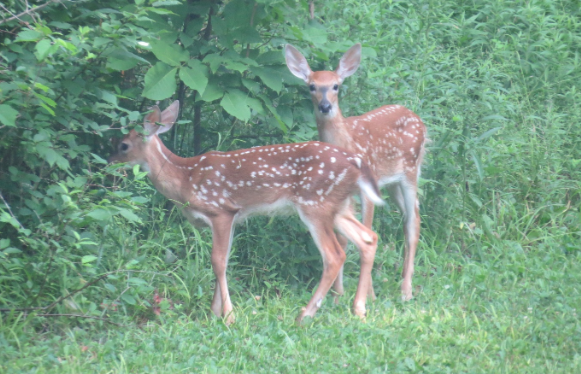EDITOR'S NOTE: Kids for Turtles Environmental Education is an outreach organization working to increase public awareness about the importance of increasing our attention and commitment to local environmental stewardship. Their monthly column is published on the third Wednesday of the month. For more information visit their website.
Family Day has been celebrated in Canada since 1990 and it is a time when families come together and do activities as a group.
We hope you got to enjoy the beautiful outdoors this past weekend and got a good dose of fresh air and nature. The weather certainly cooperated!
While animals don't celebrate this February holiday as we do, family is an important part of their lives as well. Similar to human families, creatures in the wild all look different and parents take on different roles.
Species have adapted different techniques of parenting and caring for their young to ensure the continuation of their species. While species have different techniques of parenting, a focus on safety, teaching, and protection is what many animal parents have in common.
White-Tailed Deer fawns are raised by their mothers, spending their first two years of life with their mom. Fawns are kept hidden for their first month to ensure they are protected.
Fawns are able to lay so still and quiet that they can go completely unnoticed by humans and predators. If a mom deer has more than one fawn, she will hide each in a different spot along her foraging route.
After fawns are one month old, they will all join their mother and learn the travel routes, feeding areas, and how to alert other White-Tailed deer of danger. After a few months of school, these fawns and their mom will rejoin a group of does. While this family mainly consists of fawns and their mom, not all animal families parent this way.
Red Fox families are made up of a male, female, and usually around 5 pups. Fox pups are extremely helpless when they are first born, they tend to weigh less than a quarter of a pound and won’t open their eyes until they are 10-14 days old.
The mother Red Fox will act as a heated blanket to ensure her pups stay nice and warm. Once they have enough fur to keep themselves warm, the mother and father Red Fox will have toddlers to deal with.
At only two weeks old, pups are fully furred and ready to play! They won’t leave the den yet but will play, nap, nurse, and get groomed by mom, while dad protects the den and brings food back to the hardworking mother.
The pups won’t leave the safety of their home until almost four months old and then they will go with their parents to learn to hunt and scavenge for food. School will be in for the pups until they leave their family just before their first birthday.
Each of these families does things a little bit differently but their techniques make sure their species continues on. Just like with humans, families can look different and have different roles and every type of family is worth celebrating a Family Day, whether yours was this past weekend, or even better, every day.
Kids For Turtles is also a big family and we want to celebrate with all the community the wonderful environment that we are so lucky to have in our back yard.
To that end, we will be hosting a snowshoeing event on March 7 from 10 a.m. until noon at Scout Valley. We will have snowshoes if you don’t own a pair already, hot drinks and refreshments, and even door prizes!
Come see us at Regan House and enjoy the outdoors with us. Please note that if there’s not enough snow to snowshoe we’ll still run the event, but it will be a hike instead. Come play with us!
---
This article was written by Shania Van Dusen, a graduate student at Lakehead University and intern for Kids for Turtles.
